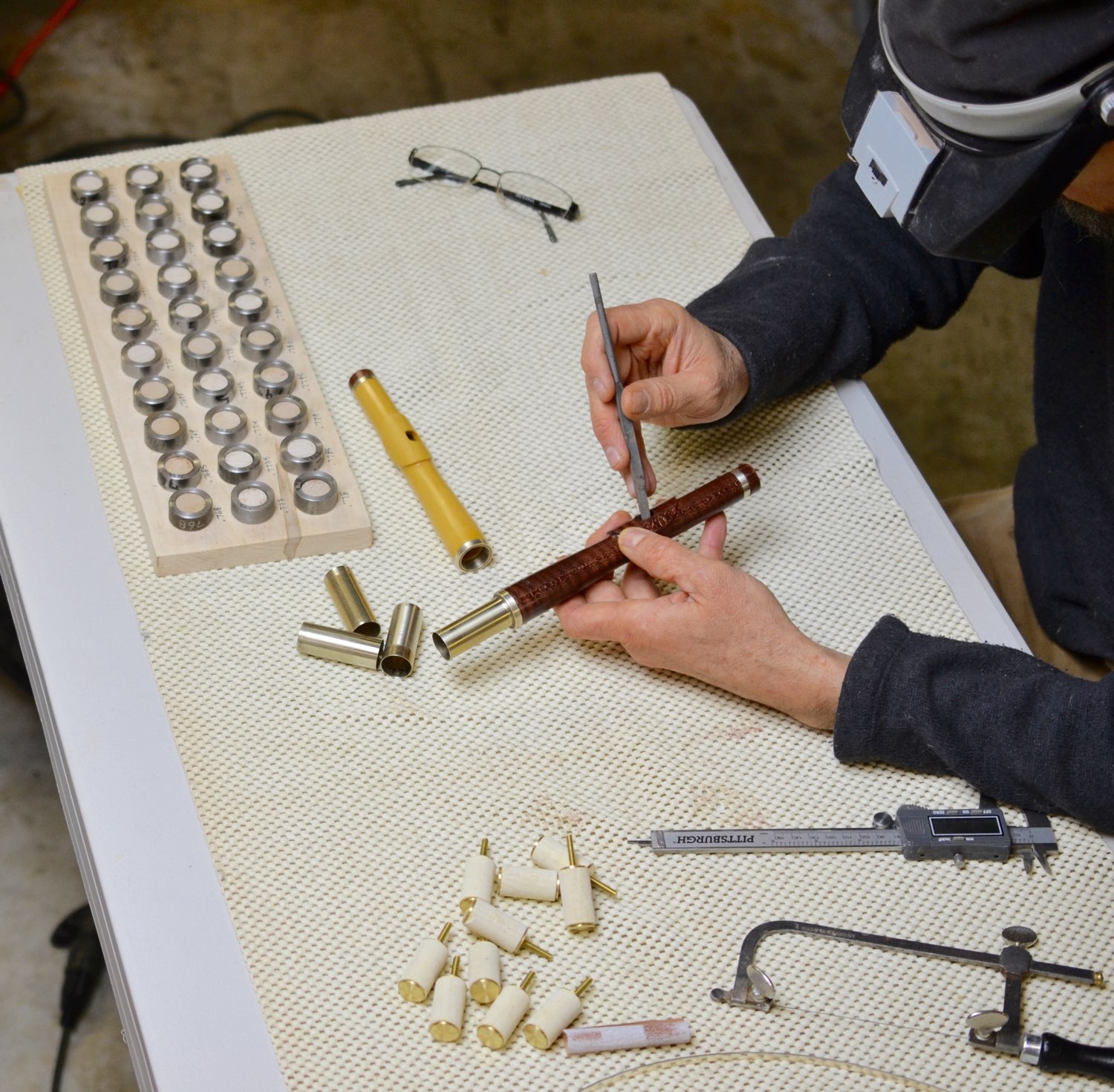
I work as a solo artisan in a small workshop next to my house. I make a wide variety of different woodwinds from cultures around the world, and I believe this diversity has been a key component in my success as a flute maker. By working to master many different types of instruments, I have amplified and accelerated my learning process, discovering tools and techniques that improve my range and efficiency.
Working in a small shop and having to be responsible for every step of the flute making process can be challenging at times, but I believe the benefits are substantial because I’ve been compelled to create a very broad base of skills in both the fields of woodworking and metallurgy.
I’m self-taught in flute making, but I have also benefitted greatly by working closely with a number of collaborators, including professional musicians as well as other makers. These collaborative relationships have been amazingly fruitful, both in expanding my knowledge of the craft as well as compressing time, allowing me to learn new skills in very concentrated periods of time. Since 2008, I have been extra fortunate in being able to study under a brilliant local machinist with over fifty years of experience, and under his guidance I’ve learned the craft of manufacturing my own tooling and fixtures, which allows me to create highly specialized instruments.
My shop holds a collection of common woodworking machinery, as well as metalworking machinery, a custom drilling rig for boring flutes, and a CNC (computer controlled) milling machine. Having the right tools is what allows me to work effectively on my own.
I work primarily in wood, but I’ve also recently begun using Ebonite (a natural, food-safe hard rubber with extraordinary acoustic properties) as an alternative to wood, and several years ago I also began experimenting with vacuum resin stabilization of woods, which is the process of infusing them with a hardening resin in a vacuum chamber. The value of this is that it can give domestic woods such as hard maple, added density. This makes the woods behave (acoustically) like the more dense tropical hardwoods. Plus it has the added advantage of virtually eliminating shrinkage over the life of the instrument. It is not something I use for all of my flutes, but there are special instances where it is the perfect solution.
I tend to work in small batches, often focusing on a particular instrument and doing limited runs of that instrument. This enhances efficiency while at the same time allowing me to change things up a bit. So each week I’m making something different!
Flute making is a deeply rewarding vocation and the most gratifying part of it is when one of my customers writes to me to express spontaneous appreciation of their new instrument. The fact that they are so happy that they take the time to do this still delights me—it has never grown stale and it just adds immeasurably to my satisfaction in my work.